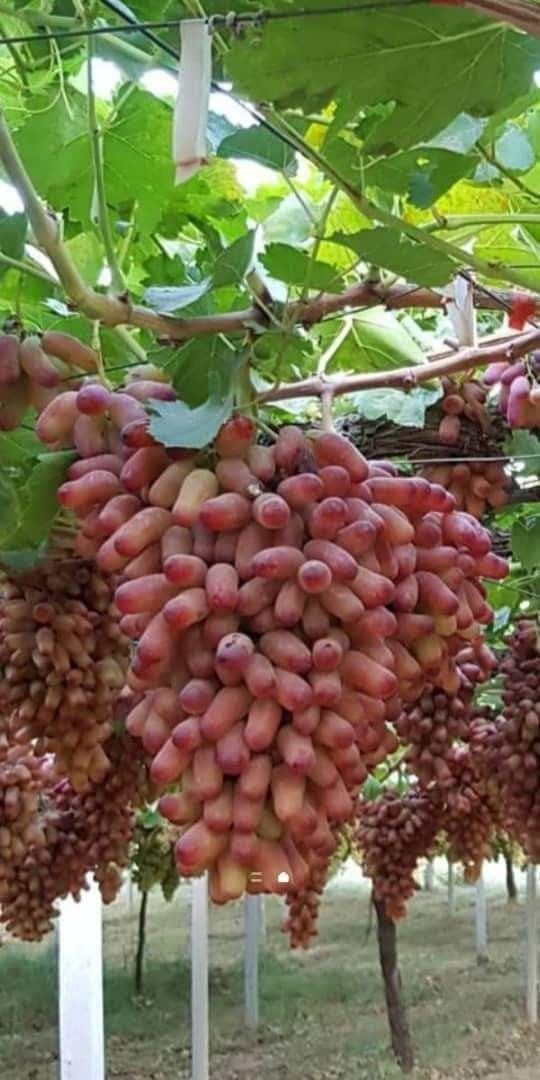Grapes, the small round fruits clustered on vines, have been cultivated for thousands of years and hold a prominent place in both culinary and cultural realms. These juicy treasures offer a delightful blend of flavors, colors, and textures, making them a favorite among fruit enthusiasts. In this article, we embark on a journey through the enchanting world of grapes, exploring their rich history, diverse varieties, and the numerous benefits they bring to our lives

A Tapestry of History: Grapes have a storied past that stretches back to ancient times. Originating from the Mediterranean region, they have been cultivated for winemaking and enjoyed as a fruit for over 6,000 years. Grapes hold deep cultural significance, symbolizing abundance, fertility, and celebration in various civilizations throughout history.

Bountiful Varieties: Grapes come in an array of varieties, each with its unique characteristics and flavors. From the small and sweet Thompson seedless grapes to the robust and tannin-rich Cabernet Sauvignon grapes used for winemaking, there is a grape to suit every taste preference. Red, green, and black grapes adorn supermarket shelves, offering a visual feast and a choice for every palate

A Culinary Versatility: Grapes’ versatility extends beyond being enjoyed as a fresh fruit. They lend themselves to a myriad of culinary creations. Grapes can be transformed into refreshing juices, jams, and jellies, and their concentrated sweetness adds depth to savory dishes and salads. Additionally, they make delightful companions in cheese platters, complementing the flavors of various types of cheese

Nutritional Powerhouses: Grapes offer not only a burst of flavor but also an array of health benefits. They are rich in antioxidants, vitamins C and K, and dietary fiber. These nutrients contribute to overall well-being, supporting immune function, promoting heart health, and aiding digestion. Additionally, grapes contain resveratrol, a compound known for its potential anti-aging and anti-inflammatory properties

Wine and Cultural Heritage: Grapes’ association with winemaking and its role in cultural heritage cannot be overlooked. Wine production from grapes has become an art form, with distinct flavors and characteristics tied to different grape varieties and terroirs. Grapes have also played a significant role in traditional harvest festivals, where communities gather to celebrate the fruits of their labor and honor their cultural traditions.